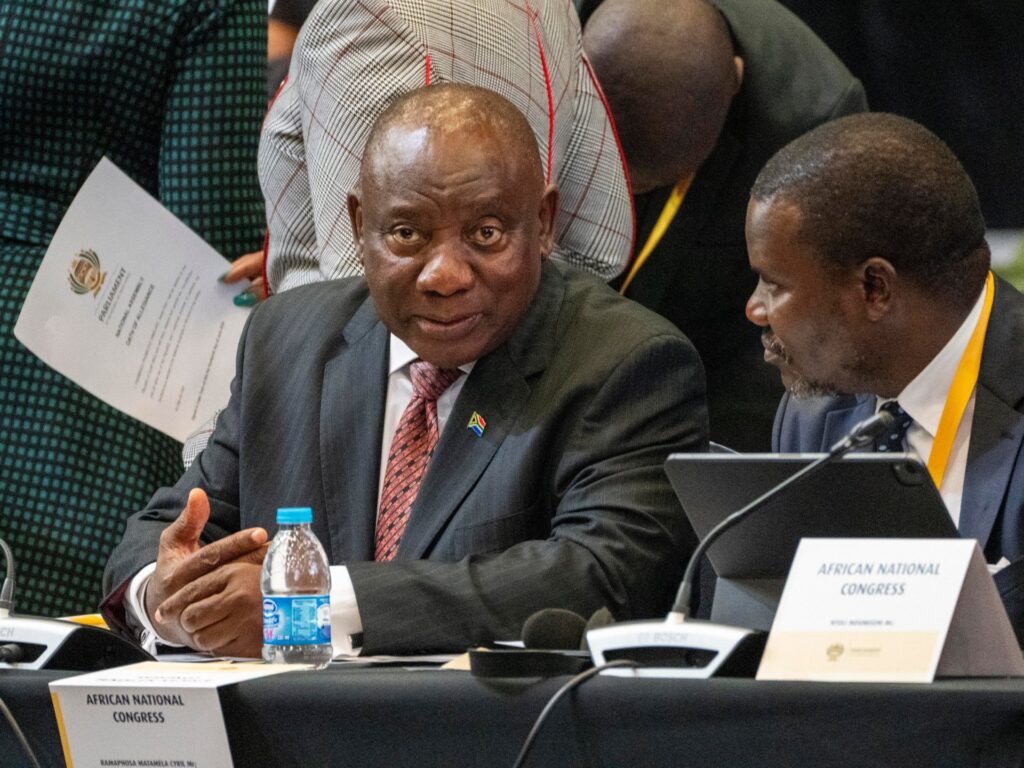South Africa Forms Historic National Unity Government Following Contentious Elections
In a landmark political development, South Africa has established a new cabinet following a month-long stalemate after elections saw the African National Congress (ANC) lose its parliamentary majority for the first time in nearly three decades. President Cyril Ramaphosa announced the formation of the historic governing coalition late on Sunday, naming 32 ministerial positions in the new government of national unity.
The ANC secured 20 of the 32 cabinet posts, with six going to the Democratic Alliance (DA) party and the rest distributed among a diverse array of smaller coalition partners. This unprecedented power-sharing arrangement comes after the ANC, a dominant force in South African politics since the end of apartheid in 1994, secured only 40 percent of the vote in the May 29 elections. This marked a sharp decline from their traditional comfortable victories of over 60 percent, as South Africans expressed widespread frustration over poverty, inadequate public services, and some of the highest global rates of inequality and unemployment.
Implications for South African Politics
President Ramaphosa acknowledged the challenges facing the country and emphasized that addressing these issues would be a priority for the new government. "We have shown that there are no problems that are too difficult or too intractable that they cannot be solved through dialogue," he stated.
The formation of this coalition government follows extensive political maneuvers and concessions from the ANC. Notably, Ramaphosa appointed DA leader John Steenhuisen as Minister of Agriculture, a significant nod to the opposition. Despite the concessions, the ANC managed to retain control of pivotal portfolios, including the Ministry of Trade and Industry, which was highly contested by the DA. Paul Mashatile of the ANC will also continue his role as Deputy President.
Steenhuisen expressed optimism about the new coalition government’s potential impact. "We look forward to being part of a new era in South Africa’s democratic journey, and to bringing real and tangible change to the millions of citizens who voted for it," he said in a statement following the announcement.
Analyzing the "Major Shake-Up"
The overhaul has been seen as a way to rejuvenate South Africa’s political landscape, which has been dominated by the ANC since the end of apartheid. Melanie Verwoerd, a political analyst and former South African diplomat, commented on the significance of the new cabinet. “It is a major shake-up with very few of the old faces still in there, which is a good thing,” Verwoerd said. “I think in general it’s a very positive step and of course very positive that they could actually get this done.”
Future Prospects
The effectiveness of this coalition government will largely depend on its ability to navigate the ideological divides between its member parties. The DA has been vocal about its opposition to some of the ANC’s key policies, including black empowerment programs and land expropriation without compensation. These programs have been central to the ANC’s efforts to address historical injustices; however, the DA argues that they have principally benefited a politically connected business elite and need to be reformed.
The ANC, conversely, remains committed to these initiatives as part of its broader socio-economic transformation agenda. The contentious relationship between these policies will undoubtedly be a significant test for the coalition government.
Despite these challenges, the formation of a government of national unity is a remarkable step for South Africa. It signals a new chapter in its democratic journey, one that could potentially foster greater political inclusivity and cooperation in one of the world’s most unequal societies.
For more information on the Democratic Alliance, please visit their official website.
